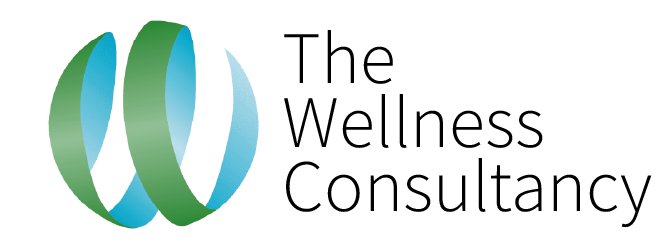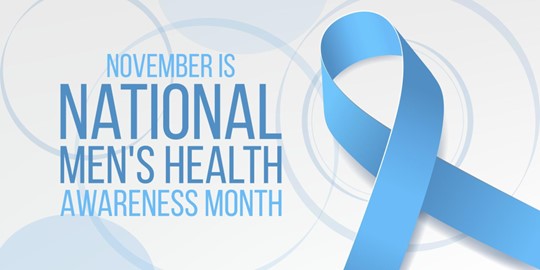Men’s mental health day takes place every year in November with the aim of increasing awareness of men’s mental health and suicide prevention, prostrate and testicular cancer. The Official for National Statistics report to March 2023 reveals that of the 9.5% of adults who report using an illegal drug 68% of them are men; and men make up 59% of those who report being dependent on alcohol. Sadly men with chronic depression and alcohol dependency are at the highest risk of death due to suicide. In 2023 the suicide rate for males in England & Wales increased to 17.4 deaths per 100,000 – the highest since 1999.
This year John Lomax, a counsellor and addiction specialist who works with us shines the spotlight on addiction which affects thousands of men.
Let’s face it—no one chooses to become an addict.
When young the oft asked question is “what do you want to be when you grow up?” Not many, if any, answer with “I want to be an addict”.
Addiction has been around a long time, perhaps since the dawn of mankind.
It is difficult to write an article on addiction without mentioning two key words; obsession and compulsion. Let’s take a look at dictionary corner to find out more. Obsession then is –“an idea or thought that continually preoccupies or intrudes on a person’s mind.” Compulsion is –“the state in which a person’s mind is completely filled with thoughts of one particular thing or person, in a way that is not normal.”1
Addiction is an inability to stop using a substance or engaging in behaviour even though there may well be serious consequences as a result. Addicts’ lives are controlled by whatever they are addicted to. Addiction not only refers to a dependence on substances like; alcohol, cannabis, cocaine & heroin etc. But can also involve an inability to stop certain activities including; food, sex, gambling, gaming & internet etc.
There are many articles and papers written on how addiction manifests from; learnt behaviour, genetics, or environmental and social factors. My belief is that it is a chronic disease. Not a moral deficiency. This view is widely held today, as noted by the NIDA, addiction can be considered a “brain disorder.”2
For drug addicts, the use of mind-altering mood – changing substances causes problems in their lives. It is a disease that develops – the more they use the more they have to use. They cannot manage their own lives. They prioritise drug use ahead of family, friends and work. It robs them of the ability to make sensible choices, robs them of their values & beliefs and of any chance to do the next right thing. It is a progressive, cunning and baffling disease to the loved ones of that addict but also, often, to the addict themselves. They become powerless their lives unmanageable. There is a real loss of dignity, of self respect and relationships. Finding ways and means to get more drugs becomes the only thing of importance in the life of an addict. This leads to isolation and chronically poor self esteem.
Cycle of Addiction
Addictive substances and behaviours provide a shortcut to the brains reward system flooding parts of the brain with dopamine -a hormone and type of neurotransmitter, or chemical messenger, made in the brain.3 Dopamine not only contributes to the experience of pleasure but recent research suggests it also plays an important role in learning and memory – two key elements in the transition from liking something to becoming addicted to it.4
There are lots of models out here showing the various stages of addiction. The one I have chosen for this piece of work is one I first came across over 20 years ago. It’s a poem, later turned into a book by Portia Nelson, titled “There’s a hole in my sidewalk.” It is often referred to as an autobiography in five chapters.
Chapter one
I walk down the street.
There is a hole in the sidewalk.
I fall in.
I am lost… I am helpless.
It isn’t my fault…
It takes forever to find a way out.
Chapter two
I walk down the same street.
There is a deep hole in the sidewalk.
I pretend I don’t see it.
I fall in again.
I can’t believe I am in this same place
But it isn’t my fault.
It still takes a long time to get out.
Chapter three
I walk down the same street
There is a deep hole in the side walk.
I see it there.
I still fall…it’s a habit…but,
My eyes are open.
I know where I am.
It’s my fault.
I get out immediately.
Chapter Four
I walk down the same street.
There is a deep hole in the sidewalk.
I walk around it.
Chapter five
I walk down another street.
–
Chapters 2, 3 & 4 can take many years. Some unfortunately never get to walk down another street. Others still relapse many times.
Change any form of change is difficult. Habits are hard to break.
Mental Health
The impact of substance abuse on mental health can be quite devastating. People with mental illnesses experience drug problems at a higher rate than the general community. Mental health has become a more pressing issue following austerity, the pandemic and subsequent strain on the NHS, while stigma of mental health has become a topic of discussion in media.
Having a mental illness can make you more likely to abuse drugs in order to lessen your symptoms and make you feel better, in the short term. In other people, drug problems may trigger the onset of the first symptoms of a mental health issues. Drug misuse is also, it must be said, is a risk factor for suicidal behaviour.
There is a lot of scientific research that provides overwhelming evidence that not only does substance abuse interfere with normal functioning – creating powerful feelings of pleasure, but they also have long term effects on neurological functioning, metabolisms and activity.
Who is affected by the disease of addiction?
Anyone regardless of age, race, sex, class, gender, religious beliefs, politics and background. Anyone can become addicted. It is true to say that addiction does often run in families, but not always. Children of alcoholic parents can be sober their entire lives. But trends do occur in families. It would be also true to say that men are more likely to abuse illicit drugs and alcohol, with males being 11.5%, compared to females being 6.4%.5
The many guises of addiction have a massive impact on society: police, doctors surgeries, hospitals, criminal justice systems, prisons etc. Not to mention the significant harm on individuals, their families and wider community.
It is said that the sale and use of illegal drugs cost the UK society some £20 billion a year.6 While the wider harms of alcohol and drugs are estimated to cost the UK society over £30 billion.7
Treatment and support
There were over 290,000 adults in contact with drug and alcohol services between April 2022 and March 2023 numbers have been rising (latest figures available).6 With over 132,000 entering a day treatment facility or residential rehabilitation.8
Today more is understood about addiction than ever before. There are many types of treatments available from detox units to rehab centres. Counselling, Cognitive Behavioural Therapy (CBT), Psychodynamic Therapy, Psychological Therapy, Person-Centred Therapy etc. NHS, Mutual Aid, 12 Step Programmes; Alcoholics Anonymous (AA), Narcotics Anonymous (NA), Gamblers Anonymous (GA), Food Addicts Anonymous (FAA), Cocaine Anonymous (CA), Sex and Love Addicts Anonymous (SLAA). Smart recovery, Peer support, Harm Reduction, etc.9
My name is John. I am an addict.
I have 29+ years of sobriety.
I have 12+ years clean and in recovery.
Alcohol is a drug.
I used drugs to cover up my emotions and my feelings, like a mask. I could not cope with life – on life’s terms. I did whatever I had to do in order to get the drugs I wanted. I mainly hurt the ones I loved the most. I told myself, “I can handle it” that I would pay them back.
Oh it was fun, in the beginning. I really did think I had it all under control. But using became a habit then necessary and in the end I used when I no longer even wanted to for my survival. I didn’t really spot the progress of my disease. I was spiralling downwards blindly on a path of destruction. The more I used the more pain and guilt I felt; the more I had to use to cover those feeling of shame.
I tried limiting my usage to socially acceptable amounts with no success whatsoever. There is no such thing as a social addict. I tried “geographicals” – moving to different places to live. It followed me; it was me. I felt a failure, a lost cause, worthless & unworthy. I quit quitting as I just could not understand why I could not beat it, was I such a bad person?
It’s true for me once I stopped drinking my life did get better. I had a home detox and counselling really did help. But within a short space of time my drug use rocketed. I was back to square one.
I had to realise I was powerless my life had become unmanageable. I had no choice. I was sick and tired of being sick and tired. I harmed many people but mainly I harmed myself – my potential. My life was meaningless. Such a waste!
Justification turned to denial, hope was lost and isolation took hold. Fear became the norm. I needed help. I had to change my playmates and playgrounds. I had to get honest, humble and surrender. I had to accept my reality. I had to change.
The first thing to be is abstinent. (Please spare a thought for those people who are addicted to food here). Getting clean can be relatively easy; staying clean can be more of a challenge. Once the body begins to heal, the mind kicks in, the addiction – the disease, kicks in. One needs a deep foundation based on surrender in order to withstand life’s trials.
Today I am in recovery. Today I am a productive member of society. I do the things that I say I will do. I try to live my life through spiritual principles – I don’t always manage that, I am a work in progress. Today, though, I do have a choice.
Next Steps
If you feel the need for change in your life, if addiction of any form is taking you over, the Wellness Consultancy can help. We have rooms in Bolton and Chorley and dedicated therapists who can assist you in the journey to change.
My name is John. I am a qualified Counsellor, Psychotherapist. I also practice Clinical Hypnosis. I work a 12 step programme. I have lots of personal experience. I have helped many people I am there to help you. Please reach out today email: wellness-consultancy@outlook.com;
For further information:
For more general resources and support check out the Movember website:
https://uk.movember.com/mens-health/get-support
Citations
- Oxford English Dictionary: https://www.oed.com
- “Drugs, Brains, and Behaviour: The Science of Addiction.” https://nida.gov/publications/drugs-brains-behaviour-sciencce-addiction/drug-misuse-addiction
- “What is Dopamine” https://www.webmd.com
- “The difference in addiction between men & women.” https://www.addictioncenter.com
- “Understanding addiction: How addiction hijacks the brain.” https://www.helpguide.org
- “Reducing the harm from illegal drugs” https://publications.parliment.uk
- “Substance misuse harms impact the vulnerable and disadvantaged.” https://www.bma.org.uk
- “Adult substance misuse treatment statistics.” https://www.gov.uk>goverment
- “How many people seek rehab for Drug and Alcohol addiction in UK.” https://www.castlecraig.co.uk

